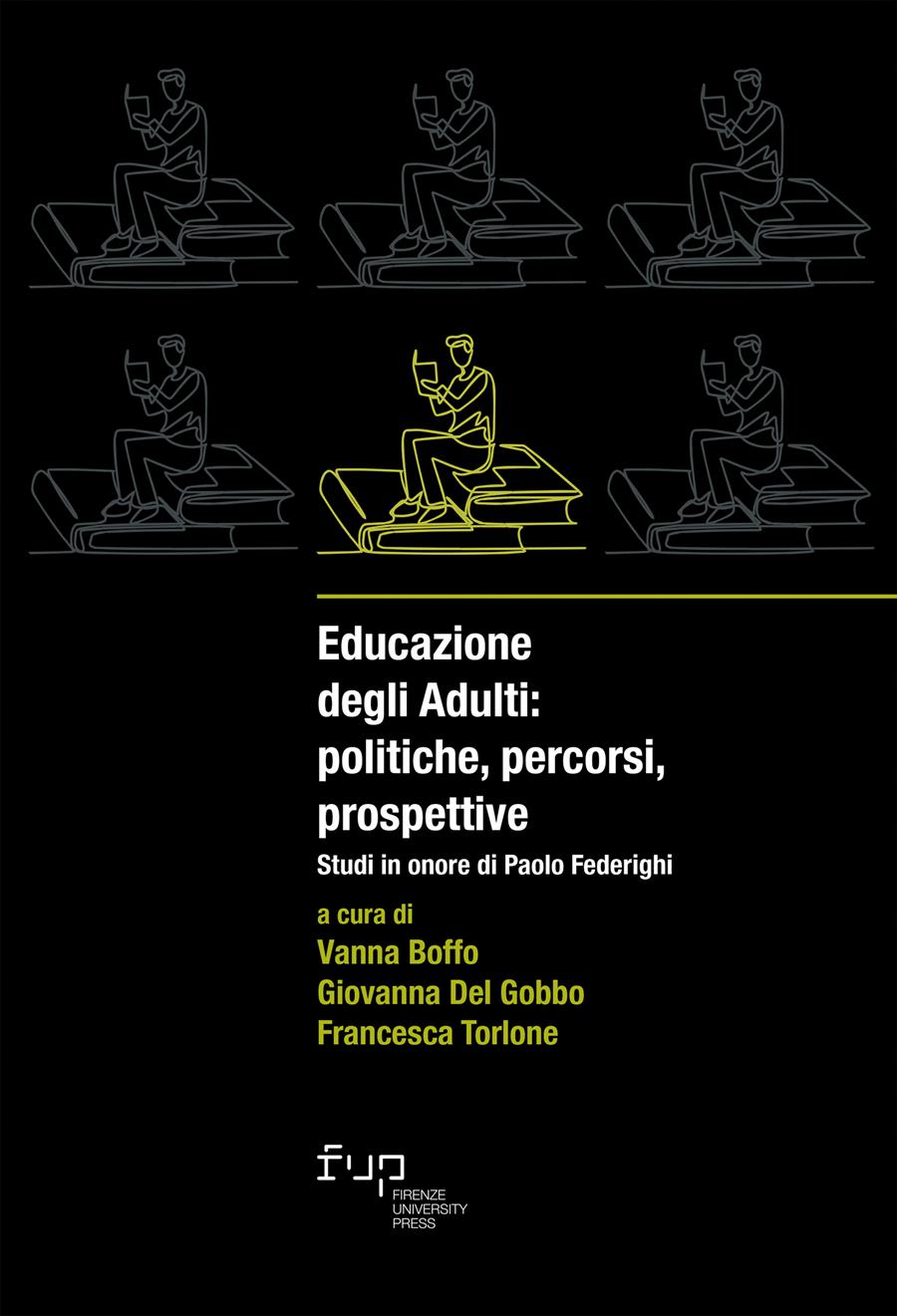- Educazione degli Adulti: politiche, percorsi, prospettive
- Edited by Vanna Boffo, Giovanna Del Gobbo, Francesca Torlone
Sviluppare identità di persone che apprendono
- Maura Striano
- © 2022 Author(s) |
- CC BY 4.0
- DOI: 10.36253/979-12-215-0006-6.19
Within the context of a reflection on learning from a lifelong and lifewide perspective, this paper intends to highlight the pedagogical need to focus on the individual and her or his resources as a prerequisite for starting and maintaining a fruitful “learning career”. For this purpose, the construct of “learning identity” is explored in depth. Within the field of the “technologies of the self” it has been possibile to identify dedicated strategies and tools that can support the growth and evolution of this form of adult identity in support of a leaning that can nourish the different stages of life.
- Keywords:
- Learning,
- learning identity,
- learning career,
University of Naples Federico II, Italy - ORCID: 0000-0001-7398-3288
- Bernstein, B. 1996. Pedagogy, Simbolic Control and Identity, Theory, Research and Critique. New York-Oxford: Rowman & Littlefield.
- Bernstein, B., e J. Solomon. 1999. “Pedagogy, Identity and the Construction of a Theory of Symbolic Control.” British Journal of Sociology of Education 20 (2): 265-79. DOI: 10.1080/01425699995443
- Bruner, J. 1996. The Culture of Education. Cambridge (MA): Harvard University Press.
- Crossan, B., Field, J., Gallacher, J., e B. Merril. 2003. “Understanding Participation in Learning for Non-traditional Adult Learners: learning careers and the construction of learning identities.” British Journal of Sociology of Education 24 (1): 55-67. DOI: 10.1080/01425690301907
- Dubois, D. 1998. The Competency Casebook. Amherst: HRD Press.
- Falsafi, L., e C. Coll. 2011. “La construcción de la identidad de aprendiz: coordenadas espacio-temporales.” In La identidad en Psicología de la Educación: necesidad, utilidad y límites, a cura di J. I. Pozo, e C. Monereo, 77-98. Barcelona: Narcea.
- Foucault, M. 1992. Tecnologie del sé. Torino: Bollati Boringhieri.
- Gilbert, T. F. 1996. Human Competence: Engineering Worthy Performance. New York: Wiley.
- Kolb, A. Y., e D. A. Kolb. 2009. “The learning way: Meta-cognitive aspects of experiential learning.” Simulation & Gaming 40: 297-327.
- Lemke, J. L. 1997. “Cognition, context, and learning: A social semiotic perspective.” In Situated cognition: Social, semiotic, and psychological perspectives, a cura di D. I. Kirshner, e J. A. Whitson, 37-55. Mahwah: Lawrence Erlbaum Associates Publishers. DOI: 10.4324/9781003064121-3
- Molden, D. C., e C. S. Dweck. 2006. “Finding “meaning” in Psychology: A lay theories approach to self-regulation, social perception and social development.” American Psychologist 61 (3):192-203. DOI: 10.1037/0003-066X.61.3.192
- Rychen, D. S., e L. H. Salganik., a cura di. 2001. The definition and selection of key competencies. Paris: OCSE.
Chapter Information
Chapter Title
Sviluppare identità di persone che apprendono
Authors
Maura Striano
Language
Italian
DOI
10.36253/979-12-215-0006-6.19
Peer Reviewed
Publication Year
2022
Copyright Information
© 2022 Author(s)
Content License
Metadata License
Bibliographic Information
Book Title
Educazione degli Adulti: politiche, percorsi, prospettive
Book Subtitle
Studi in onore di Paolo Federighi
Editors
Vanna Boffo, Giovanna Del Gobbo, Francesca Torlone
Peer Reviewed
Number of Pages
248
Publication Year
2022
Copyright Information
© 2022 Author(s)
Content License
Metadata License
Publisher Name
Firenze University Press
DOI
10.36253/979-12-215-0006-6
ISBN Print
979-12-215-0005-9
eISBN (pdf)
979-12-215-0006-6
eISBN (epub)
979-12-215-0007-3
Series Title
Studies on Adult Learning and Education
Series ISSN
2704-596X
Series E-ISSN
2704-5781
